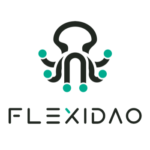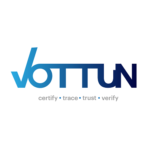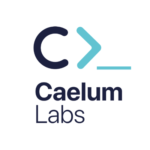The sky’s the limit for blockchain. Everybody talks about it, but few seem to (truly) get it. But with the industry continuing to grow exponentially, this doesn’t matter – or is it a sign that things are getting out of control? As technologist, entrepreneur and investor Kevin Rose shared on the Tim Ferris podcast: “When Uncle Harry is asking you if they should be buying Bitcoin, that’s when my Spidey sense tingles a little bit and be like, ‘Huh, everybody wants this now.’” Another indicator? The latest Bored Ape NFTs is bringing in bids in the region of €200K.
So amidst all the hype, how can you actually identify the best Barcelona blockchain startups or those that provide value, and separate them from the ones that are just trying to jump on the bandwagon? Well, you don’t need to. I’ve already done it for you. By reaching out to industry experts and the Barcinno community, I used their feedback plus my own research to develop this list of the most promising blockchain startups in Catalonia. It includes inside stories on how they were founded, where they are heading plus insights on what happened to other blockchain ventures from our beloved city. Let’s go!
9 best Barcelona blockchain startups
The established ones:
Validated ID
Launched in 2012 and having raised €5.9M to date, Validated ID has been around for a long time. Yet, given their high level of innovation, they still merit inclusion on this list as the most established and mature blockchain company in Barcelona. They initially started as an e-signature company and then a few years back expanded their services to go into blockchain-based digital identities with their solution VIDchain. This is basically a decentralized self-rule identity (SSI) service based on blockchain which gives people control over their identity and facilitates secure user access to online services. It comes with full GDPR compliance and also meets AML and KYC requirements, making it the perfect solution for a world that is increasingly reliant on online identities to access a multitude of services. For instance, even within the blockchain space, verifying your identity is fundamental for accessing things like exchanges, defy platforms and so on. Firmly established as a leading blockchain firm in Barcelona, Validated ID’s future is very bright indeed.
The big ones
Freeverse
Freeverse.io provides a platform that allows companies to include ‘Living Asset NFTs’ in their product. Living Assets are NFTs whose properties can evolve according to how their owner uses them. This means that the NFT’s value is not just dependent on speculation based on its rarity, but also on what the owner has actually done with it. Freeverse allows organizations to create millions of NFTs at almost zero cost and has marketplace technology that permits users to trade NFTs for real money (i.e. euros) or cryptocurrencies.
How did the business come around? Toni Mateos (now CTO) fell in love with blockchain and digital ownership while working as Director of Research at Dolby Laboratories. Not being able to do much in the field from within Dolby, he set out assembling a team with the vision of creating a new category of NFTs that could be valued by how they are used, not by their scarcity. One morning in late 2018, he invited now-CEO Alun Evans to have a coffee on the beach in Barcelona – the resulting ideas turned into Freeverse.
Since then, the company has raised €1.5M and grown to a team of 9. Their platform goes live into production this month and they will shortly be announcing some major contracts they’re signing with world-famous brands. As Alun explains: “The future of NFTs will not be the expensive and rare items that they are at the moment, but digital assets that people can use to create real value.” On the back of this vision and their success, they’re currently looking to take the next step by raising a Series A investment round
FlexiDao
FlexiDAO provides cutting-edge energy traceability software solutions to help companies adopt a 24/7 carbon-free energy procurement approach for the greatest climate impact. The software is based on blockchain, which acts as a real-time digital notary that records the generated electricity, timestamps its origin, and transforms it into a digital asset that is automatically transferred to consumers based on their consumption. It gives secure access to selected teams and third-party auditors and avoids simultaneous data entries and human errors, ensuring the highest form of credibility and authenticity of information shared with stakeholders.
The roots of the company go back all the way to 2016 when Simone Accorenero (now CEO) and Grzegorz Bytniewski (now CTO) were studying together at the Polytechnic University of Catalunya (UPC) – fittingly, a degree in Innoenergy. They shared multiple interests and, in particular, a high curiosity towards DeFi and cryptocurrencies. During a night out, the following idea came around according to Grzegorz: “The new decentralized energy grid was growing. And the versatility that characterizes the metaverse and smart contract was going to turn them into the perfect candidates to fulfill all the new requirements resulting from that trend of the energy sector.”
Following this vision, FlexiDAO was founded in 2017. Joan Collell (now CCO) reached out to them via a UPC professor shortly thereafter and the rest is … – actually not. His emails were initially dodged by Simone apparently, as he likes to point out to this day, but I’ll leave clearing this internal dispute to themselves. Anyway, they figured it out eventually and, having raised €1M+, they now form a solid team of 20 people.
Looking ahead, the energy transition provides a great opportunity for the blockchain-based company. The global shift will require solutions that enable sufficient (time and space) granularity to ensure traceability of the electricity we produce and consume – which eventually translates into transparency. FlexiDAO helps with exactly that. As the leading technology provider for the 24/7 Carbon-Free Energy procurement, the firm leverages its blockchain-based software solution to help companies progress in their net zero agendas. As Grzegorz states: “A lot is expected to happen in the forthcoming months and years in terms of energy policy and sustainability reporting trends, and we are working unceasingly to keep on being a forerunner of the energy transition.”
Vottun
Vottun, the “WordPress of blockchain”, is a startup based in Spain and the USA offering traceability solutions and certificates through blockchain technology. It contributes to the digitization of the business fabric by helping companies be more efficient and transparent in their business processes. They offer a wide range of services, ranging from traceability solutions for the food industry and digital certifications all the way to NFTs. And that’s not even mentioning CETTUN, a skills certification tool based on blockchain technology.
The company currently has 14 employees and has raised €1.1M to date. Leading investors include Draper B1, RocaSalvatella and Lánzame Capital. As more and more organizations are exploring how to leverage blockchain, Vottun is well-positioned to benefit from this trend. After all, their portfolio of solutions makes it easy for companies to develop blockchain applications without the need to understand much of the underlying blockchain technology.
Rand
Rand is a way for groups of people to earn more money with their savings. Its mobile app, powered by a yield aggregator, focuses on helping Gen Z earn extra money through direct interaction with DeFi markets on autopilot. In essence, this works in three steps. First, you set up your account and deposit funds. Then, you either join a public Rand Party or create a private one. Finally, once the predefined period ends, you earn the yield which either gets distributed between participants or to a randomly chosen winner, depending on the settings.
The company was founded by Pol Martin in 2021 after personal frustration. A year ago he wanted to move to NYC with a couple of friends but didn’t have enough money to do it. Around the same time, he was working on DeFi yield strategy on several money markets, using his own money. However, the rest of his friends didn’t understand all the stuff he was doing with it. As he shared with me, that’s when he realised: “Imagine having a mobile app where groups of friends can lock some side income and produce yield between different DeFi money markets in a friction-less way”. Rand was born from exactly that thought.
Ever since, the company has raised over $1M and grown to a team of 14 people. Setting their sights on the next milestones, Rand will be launching a mobile app in Europe in 2022 and continue on their mission to provide a frictionless way for Gen Z to benefit from DeFi.
Caelum Labs
Founded in 2017 by CTO Alex Puig and Alexandra Cavero, Caelum Labs is a blockchain consultancy and development startup. The company focuses on automating processes with blockchain technology in a secure and private way. It offers a solution to the typical problems encountered when collaboration processes span the enterprise boundary, such as conflicting records between companies that lead to disputes, delays and unplanned costs.
While Caelum has its HQ close by in Sitges, Alex is also the founder of Madrid-based Alastria, the first nationwide semi-public blockchain platform in the world. Caelum Labs is writing its own success story, however, with the recent securing of a €500K financing round for “Caelum”, its business process automation solution based on blockchain technology and Sovereign Digital Identity. With this investment, the company is expected to reach a turnover of €1M in 2021 and see some 15% growth in their ten-person team. In terms of next steps, Caelum Labs has already closed collaboration agreements in Colombia and Peru in a bid to expand to the LATAM market.
The new challengers
Okashio
If you’re an investor looking for early-stage blockchain startups, this one’s for you. Okashio is a brand new Barcelona blockchain startup launched by Victoria Gago and others.
It’s a crypto-collateralized lending platform and app that allows you to borrow euros using your owned cryptocurrency as collateral. Its loans are a way to provide liquidity in real money (euros) to bitcoin and ether holders that want to maintain their cryptocurrency investments. So in essence, it’s a way for you to make money from your crypto investment without having to unload any of your assets. This solves a particular need as several crypto holders are not willing to cash in on their investments right now but do need cash in euros at times.
One of the main benefits of Okashio is that payouts are linked directly to your IBAN account. This is in stark contrast to other loan providers in the crypto market which hand out payments in stablecoins or crypto currencies, meaning you’d have to go through the pain of exchanging them for euros and then transferring to your account. Additionally, as the firm works with a certified BaaS provider, it is one of the first fully regulated crypto lending institutions in Europe.
Okashio already secured a first funding round from the VC firm Blockchain Founders Group and plan to go live at the start of next year.
Readl.co
Readl is a brand new blockchain company that was launched this year by Diego Torres, the president, as well as product specialist Nuno Figueiredo and CTO Jose Juan Sanz. The firm is basically a blockchain network that reshapes the book publishing industry by returning ownership back to book authors, publishers, and readers through NFTs. In other words, it builds tools for writers, artists, and contributors to create NFT book editions and collectibles providing a whole new reading experience.
The idea behind the company is to solve two major pain points in the publishing industry. First, the world needs decentralized tools which are fairly governed by all participants and that can create a system where everyone can freely share information without fear of repression. With Readl, no one has the absolute power to censor or delete the published information on the network. Second, the current ebook purchase policies are problematic for consumers – i.e. if Amazon closes tomorrow, you will lose all your Kindle books because you actually don’t own them. These policies also create several difficulties for authors that want to publish a book. Thanks to Readl, product ownership and all stakeholder interests are guaranteed.
The company has already grown to a team of 11 and is doing a private token presale. One of its main missions is to create the perfect synergy between art and information, based on a fair economy where the interests of all stakeholders involved in the publishing industry are a priority. As the company explained to me: “There is a huge and notable community in the publishing industry that shares the same values and ideals as Readl. Combining the inherent values of our entire team and the will of the community, we plan to make a DAO (Decentralized Autonomous Organization) where every participant of the network has a voice and a vote on the decision of the future of the platform. We are creating the next generation of decentralized information and books for web 3.0.”
INARI
INARI was founded in 2017 by a team of four, consisting of seasoned industry executives Frank Perkins, Véronique Gob, Jochi Jiménez and Teresa Madariaga. The company provides a secure SaaS platform for Insurers, Reinsurers, MGAs and more, enabling them to increase operational efficiency, improve data insights and streamline connectivity across multiple systems.
INARI has since grown into a team of around 30, with recent successes including being named one of FUTURE50 Europe’s 50 Rising Insurtechs. While the company chooses not to publicly disclose their funding, information from Crunchbase indicates that they have seemingly secured two undisclosed investment rounds in 2017 and 2018.
Looking into 2022 and beyond, CEO Frank Perkins shared with me that the teams’ goal is to “continue [their] global expansion with clients in the UK, Europe, USA, Bermuda and soon Asia with [their] MGA, Insurance, Reinsurance and Binder Management products”. He also divulged that they have set the wheels in motion to establish a presence in London, led by Chief Commercial Officer Alexander Pike, and will continue to build that out over the coming year. Putting all things together, they have a sound team, a solution that works, and are on course to reach the next stage.
What happened to … ?
Blockchain technology has been gathering a lot of hype. As such, it is no surprise that not all ventures in this space achieve the ambitiously high goals they initially set out. Or at least not in the original way they imagined. In my research for this article, I made the same observation, discovering countless Barcelona blockchain startups that have launched their companies with great enthusiasm, but have since had to adapt for various reasons.
Silent shut down or relegation to side project
A large chunk of them had to quietly shut down operations or simply decided to scale them down to bare minimum functionality. I derived this by indicators like broken or extinct homepages, no social media activities for years, no or virtually zero active employees as per Linkedin, and so on. Examples for this are the Review-Network, Gotaki and LICENS3D (If any of these are still active, you might want to update your digital profiles!). This also includes the Catalan cryptocurrency Diner that was launched at the peak of the independence movement and has since seemingly gonet into oblivion, judging by its non-functional website. This is by no means a dig at the companies or founders. In fact, many of them have gone on to create new exciting projects and seem to fare well.
Exits
I assume that other startups probably fared better and were able to exit with more grace by selling their business. However, with very little information available on this topic, I couldn’t find any examples for this category so it remains a mere theory.
Pivoting
Finally, there is another group consisting of excellent founding teams that, while bullish about blockchain, were able to pivot and adapt accordingly. A great example for this is Currency Alliance, a global SaaS platform that enables brands to easily issue, exchange, or redeem each other’s loyalty currencies in order to drive higher levels of customer engagement and conversion.
Speaking to CEO Charles Ehredt, he explained that the company is very excited about blockchain technology. It initially evaluated using it to build its platform, but eventually decided against it. The reasons were threefold. First, as only public blockchains were available at the time, it was difficult to control transaction cost. Second, the technology evolved so fast that the firm would have had to spend a lot of resources on just maintaining its systems instead of adding new features. Third, it felt simply too early, with no real demand on the market – there were no loyalty initiatives using blockchain.
The firm did deploy a blockchain-based solution for IATA (International Air Transport Association) in 2019, but the project was put on hold once the pandemic affected the travel and aviation industry. Since then, the company re-focused on its core functionality and technology with great success. Currency Alliance raised €2.1M to date and is now in the rapid growth stage. It continues to experiment with blockchain and remain abreast of the industry though. In fact, it recently started a collaboration with the API3 Foundation to expose its loyalty API and 35 optimized endpoints to 3rd party solutions built with blockchain.
The lesson? The potential of blockchain is immense, but it’s not always the best technology for building your company on. Sometimes, resisting the temptation after careful consideration and pivoting following market feedback is the better way forward. Of course, other times blockchain is the deciding factor. The takeaway: you need to honestly evaluate all options and not get fixed on it.
Barcelona blockchain startups are on the rise
Barcelona has a ton of new as well as established startups in the blockchain industry, providing an overall positive outlook. Thanks to ambitious blockchain innovators, investors, experts, connectors and educators, the ecosystem is shaping up to be incredibly powerful.
Speaking of, if you like what you’ve read and want me to do a follow up post dissecting the Barcelona blockchain startup ecosystem in more detail, covering industry leaders, VCs, accelerators and more, please upvote this Linkedin post here. If we reach over 50 likes, I’ll get started on the sequel.
And of course, if you think we missed out on a major Barcelona blockchain startup, contact me by e-mail here.
Special thanks to all contributors, particularly all the Barcinno readers who helped us with the research and, above all, Ms. Blockchain aka Victoria Gago! If you have any questions on the Blockchain startup ecosystem in Barcelona, she is the go-to expert!











